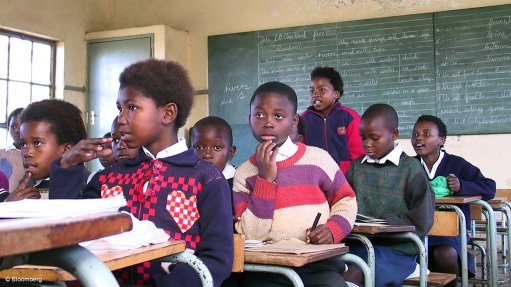
Photo by: Bloomberg
A staggering 81% of Grade 4 pupils in South Africa can't read for meaning, the latest Progress in International Reading Literacy Study (PIRLS) has revealed.
It means roughly eight out of 10 children need help locating and retrieving explicitly stated information in simple and easy text.
The Department of Basic Education released the findings that relate to South Africa on Tuesday morning.
The study is an assessment of reading achievement and is conducted every five years in around 40 countries.
The 2016 study found that 78% of South African children in Grade 4 could not read for meaning in any language. All 11 official languages were used in the assessment.
South Africa has participated in four PIRLS assessments since 2006.
The current figures show a regression of reading literacy levels among Grade 4 pupils to levels last seen in 2011.
South Africa lags far behind the world average and accounts for one of the lowest results.
While South Africa marginally improved year-on-year since the assessment began in 2006, the 2021 results were the first that lacked improvement from the previous year.
In 2016, the PIRLS assessment indicated 78% of Grade 4s could not read with meaning, but the 2021 results, which were released in Pretoria on Tuesday, showed a jump to 81%.
In 2019, President Cyril Ramaphosa announced all 10-year-old children should be able to read for meaning by 2030.
Here are some key numbers coming out of the results:
Of the 1 127 877 Grade 4 pupils in 2021, 914 000 could not read for meaning in any language.
South Africa's PIRLS score dropped from 320 points in 2016 to 288 in 2021. This is far lower than the PIRLS average of 500 points.
South Africa has essentially lost a decade of progress in reading with meaning.
According to Professor Nic Spaull, an education economist from Stellenbosch University, between 2006 and 2016 the percentage of children that could not read declined from 87% (2006) to 82% (2011) to 78% (2016) but had now increased back to 81% (2021).
He said that "wiped out a decade of slow progress, taking us back to 2011 levels of achievement".
English and Afrikaans schools did not experience a decline between 2016 and 2021.
Spaull added in comparison, most African language schools declined, saying the pandemic increased inequality between no-fee and fee-charging schools.
The average Brazilian Grade 4 child is three years ahead of the average South African Grade 4 child.
Spaull also compared South Africa's results to Brazil, which have roughly the same GDP of around US$7 000 per capita.
He said the average score in Brazil was 419 points in 2021 compared to South Africa's 288.
The average Grade 4 child in South Africa is 3.3 years behind the average Brazilian Grade 4 child.
"In Brazil 61% of Grade 4s could read at a basic level in 2021 compared to 19% in South Africa," Spaull added.